The viewer as voyeur: we're in the era of woke, but we still love a sexed-up period drama
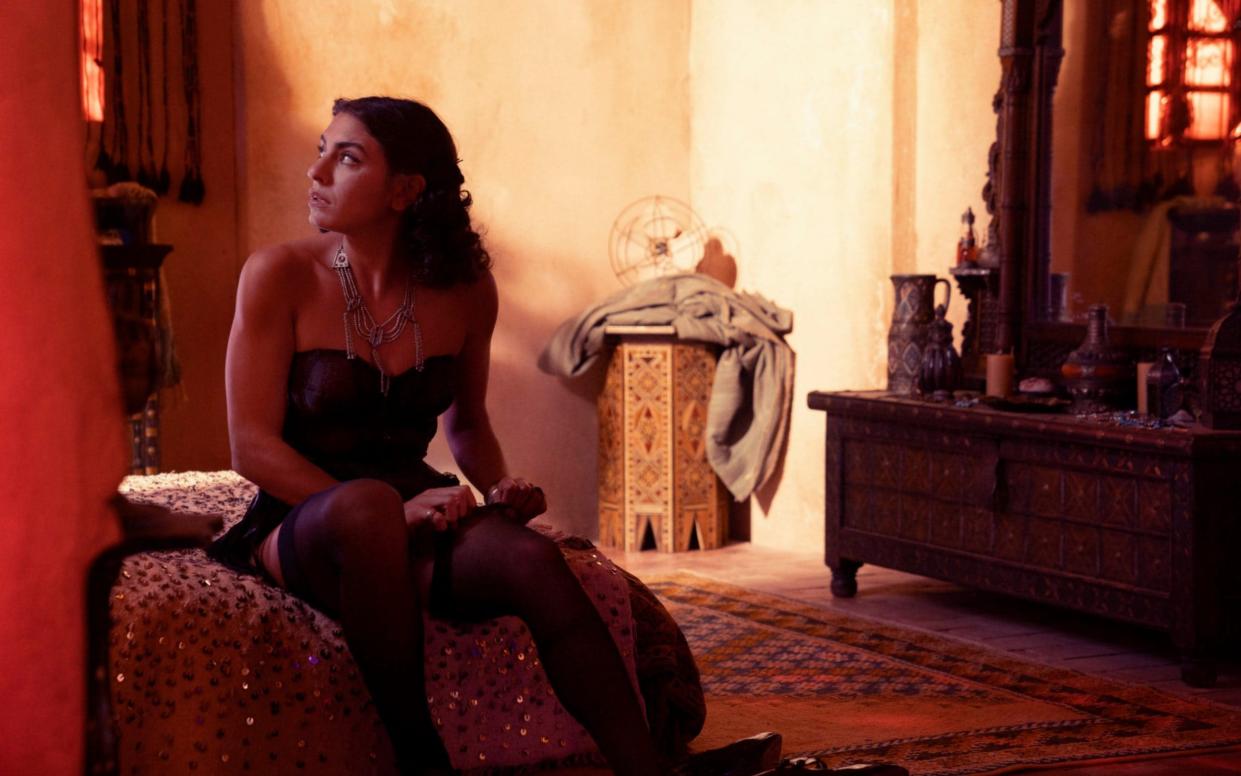
Fans of Hugh Skinner’s bare backside are in for a double treat this week. The actor – best known as Fleabag’s ex, Prince William in The Windsors and Will the bumbling intern from W1A – strips off in not one but two period dramas.
Last night, decadent melodrama Little Birds launched on Sky Atlantic. Based on Anaïs Nin’s erotic short stories, it’s set in the sultry, anything-goes world of 1950s colonial Tangier. Skinner stars as Lord Hugo Cavendish-Smyth, the seemingly repressed fiancé of naive American debutante Lucy Savage (Juno Temple). Within 15 minutes of the title sequence, Skinner is shown having explicit gay sex on a beach, with sand getting into all manner of uncomfortable places.
The provocative production’s opening double bill also took in whipping, water sports, an arty pornographic film and a dominatrix riding around on the back of a man on all fours clad in nothing but a gas mask. You don’t get that in The Durrells.
Tonight, Skinner travels two centuries further back for the terrestrial debut of rambunctious romp Harlots. First broadcast on the now-defunct ITV Encore but smartly snapped up by BBC Two, this underrated drama - inspired by The Covent Garden Ladies, historian Hallie Rubenhold’s groundbreaking study of Georgian prostitutes - follows rival brothel madams (played by no less than Samantha Morton and Lesley Manville) in London’s booming sex industry circa 1763.
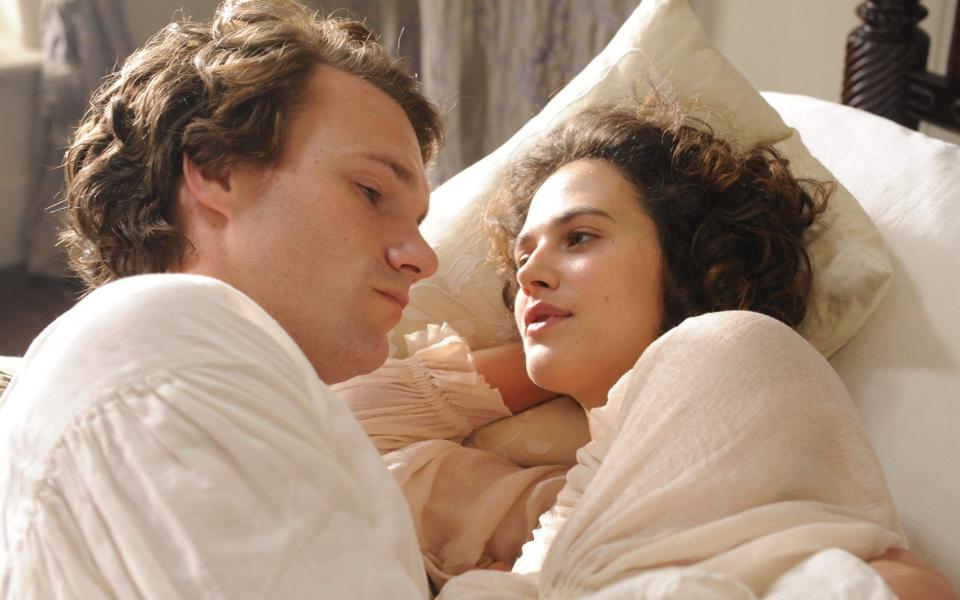
Ample bosoms heave, flouncy skirts get lifted and wigs are knocked askew during all manner of ye olde fornication. “Who dares interfere with an Englishman’s right to go whoring?” brays Skinner’s bawdy baronet, belatedly pulling up his breeches after a spot of coitus interruptus. Like one tabloid screeched this week: “Har-Lots of sex! The sauciest drama the BBC has ever aired!” It’s certainly going to liven up lockdown.
With BBC One’s Sunday night adaptation of Vikram Seth’s A Suitable Boy also steaming up the screen, albeit in a polite post-partition manner, this is a busy week for hot-under-the-collar history. All part of what we might call the “Mr Darcy-fication” of TV period drama.
That infamous moment in the BBC's landmark 1995 Pride & Prejudice miniseries was a game-changer for what can be a sedate and stuffy genre. When Colin Firth's dashing anti-hero dived into Pemberley’s lake for a refreshing dip after a horse ride and emerged - dripping wet of white shirt and tousled of hair - to greet his surprise guests, it wasn’t just Jennifer Ehle’s Lizzie Bennet who came over all aflutter.
It was one of those rare occasions when literary drama hit the front pages and became talking point TV. And, deliciously, it was thanks to the seemingly prim, bonnet-clad Jane Austen. Costume drama would never be quite the same again.
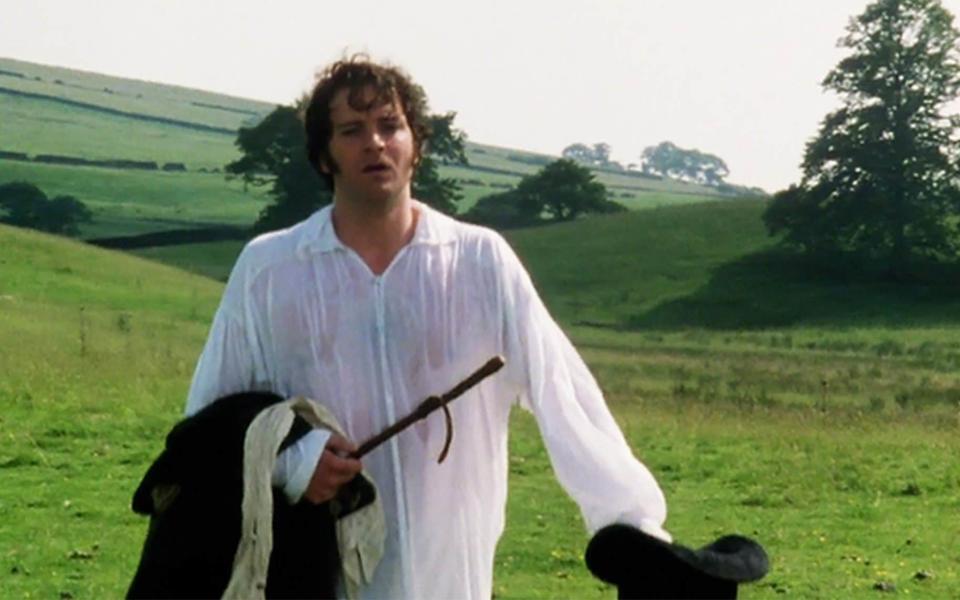
Realising that such series tend to attract female-skewed audiences - and also that they could objectify male torsos during primetime in a way they couldn’t get away with topless women - no mainstream period drama was soon complete without a pair of bare pectorals or pert male buttocks.
Disrobe and step forward: Richard Madden in Lady Chatterley's Lover, Ben Batt in The Go-Between, the skinny-dipping footman in Victoria and, most screen-grabbed of all, Captain Ross Poldark’s shirtless scything scenes.
These propelled the fairly pedestrian tricorn-hatted Cornish tin-mining saga to the top of the ratings and reluctant sex symbol Aidan Turner into the frame for the James Bond role. “T’aint right, t’aint fit, t'aint fair, t’aint proper,” as Jud Paynter would doubtless put it.
Meanwhile, Pride & Prejudice screenwriter Andrew Davies became known as our foremost adaptor and, furthermore, sexer-upper of classic literary properties. The following year, he penned the highly sexed four-part distillation of Daniel Defoe’s Moll Flanders, starring Alex Kingston as the titular libertine.
Over the next two decades, the prolific Davies would be responsible for most of British TV’s tentpole adaptations: (deep breath) Northanger Abbey, Sanditon, Bleak House, Little Dorrit, The Way We Live Now, He Knew He Was Right, Vanity Fair, Fanny Hill, War & Peace, Les Misérables and, currently, A Suitable Boy. Most were enlivened by intermittent scenes of bodice-ripping and four poster-rocking passion, just to keep viewers from nodding off after their Sunday roast.
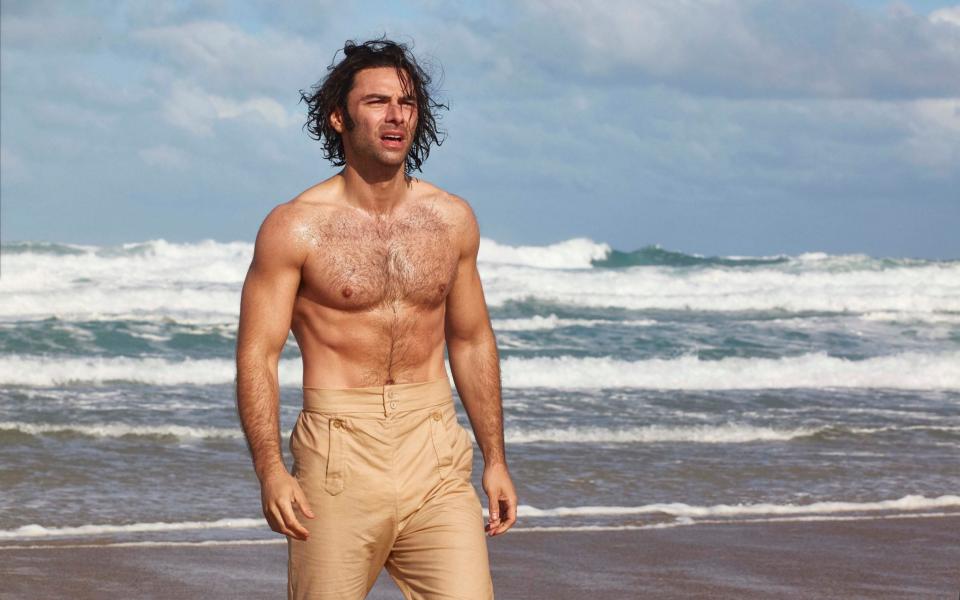
Most notoriously, Davies scripted Tipping the Velvet, the BBC's three-part frolic through Sarah Waters’ picaresque, 1890s-set debut novel. Starring Keeley Hawes, Rachael Stirling and Anna "Duckface" Chancellor, it featured some of primetime TV's most explicit lesbian sex scenes. Davies himself likened it to “Pride & Prejudice with dirty bits”.
If Davies is the king of historical high jinks, actress Natalie Dormer is surely the queen. She starred as Anne Boleyn alongside Jonathan Rhys Meyers’ implausibly handsome Henry VIII in right royal rude-fest The Tudors, as Regency raunchstress Lady Seymour Worsley in The Scandalous Lady W and as power-hungry minx Margaery Tyrell in the slightly less historical Game of Thrones.
The past decade has seen a swathe of glossy “historical fantasies”, internationally co-produced to boost their mega-budgets and maximise global appeal. See Da Vinci’s Demons (Leonardo lusts his way around 15th century Florence), The Borgias (Jeremy Irons as a pope with a penchant for sado-masochism) and Rome (essentially one long orgy punctuated by talking bits, so the cast could get their breath back).
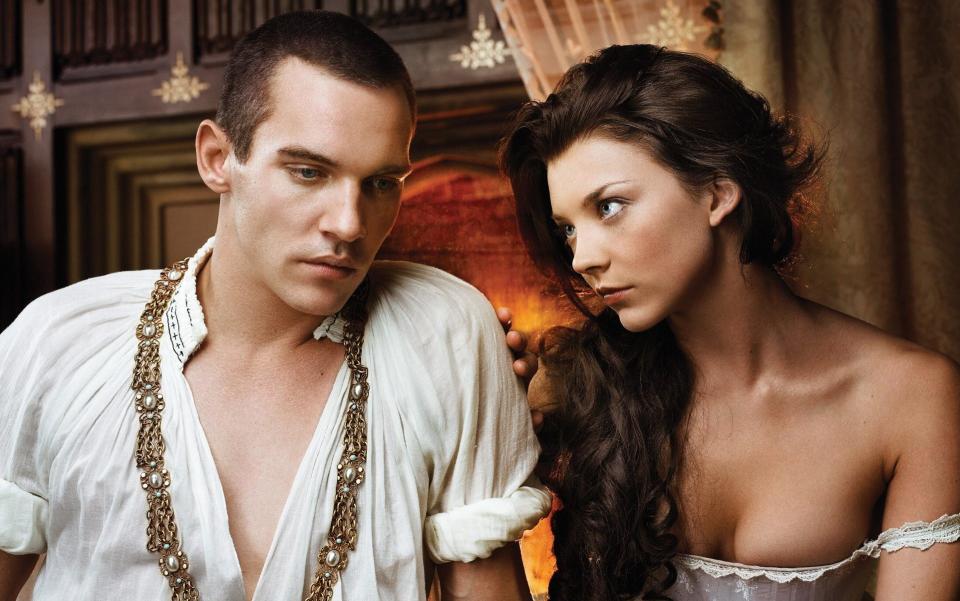
Eye-wateringly expensive epic Versailles - a joint venture between France's Canal Plus and Canada’s Super Channel, screened here on BBC Two - featured all manner of Gallic naughtiness. Namely a queen with a dwarf fetish, a cross-dressing prince and explicit bewigged orgies. “Dressing up pornography and violence in a cravat and tights doesn’t make it cultural,” raged one outraged family rights campaigner. Off with their heads.
Of course, costume dramas unbuttoning their costumes isn’t entirely a recent phenomenon. From I, Claudius to The Camomile Lawn via the works of Dennis Potter, our period pieces have long been spiced and seasoned with sex. However, it was the combined powers of Davies and Fitzwilliam Darcy that truly opened the floodgates.
Sex on TV nowadays might be depicted more realistically and, in the wake of the #MeToo movement, choreographed in consultation with “intimacy co-ordinators” to ensure the actors are comfortable. Recent millennial hits such as Normal People, Sex Education and I May Destroy You have been acclaimed for their sensitively filmed, authentic-feeling bedroom scenes.
For true escapism, though, what TV audiences really crave is corset-busting, britches-straining drama with a sheen of historical heft. T’aint right, t’aint fit, t'aint fair and t’aint proper but we still can’t get enough.
All episodes of Little Birds are available on NOW TV. Harlots begins tonight on BBC Two at 9pm

 Yahoo News
Yahoo News 
